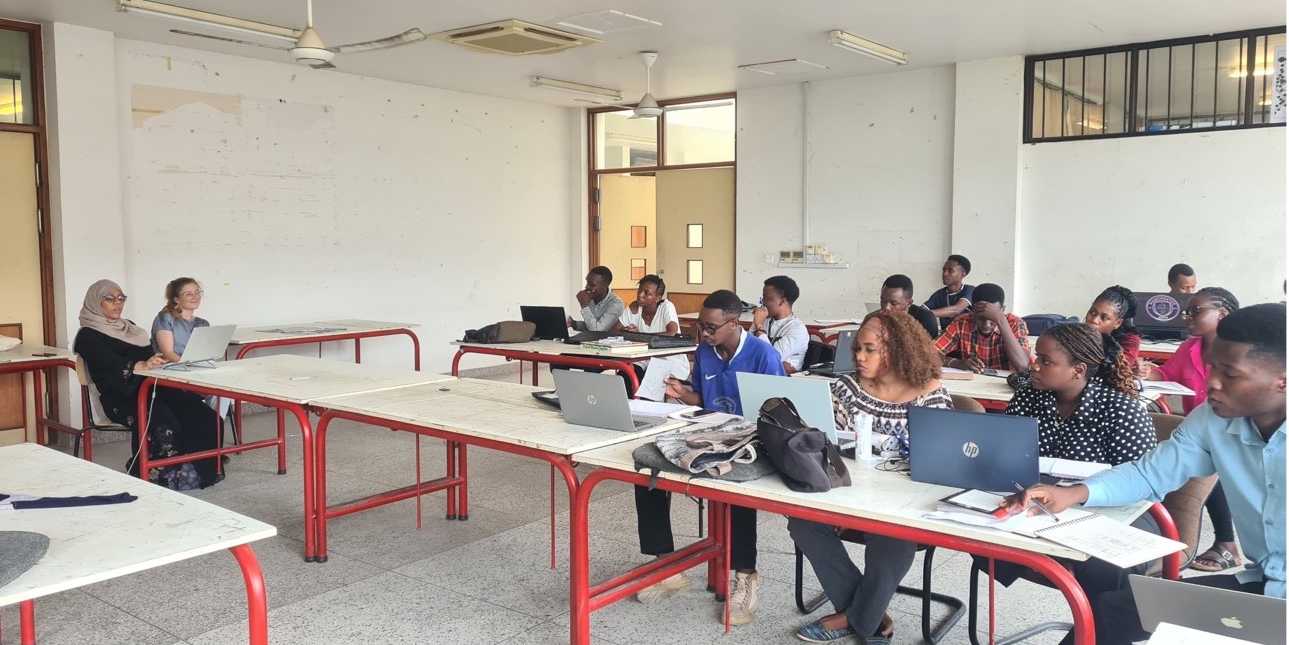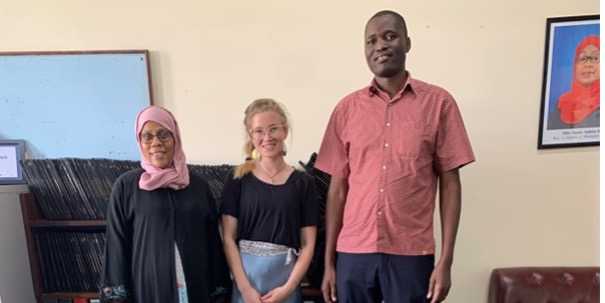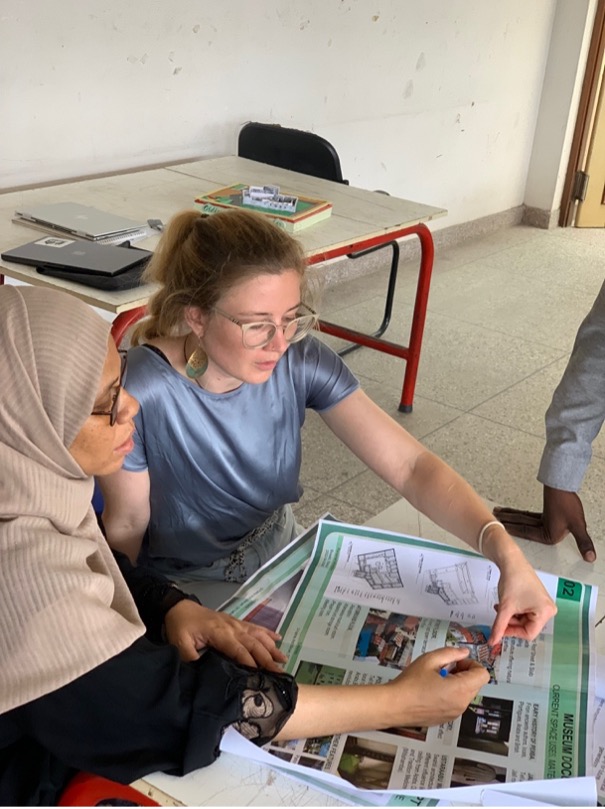
Network for Academic Partnerships: Teaching Collaboration between ETH Zurich and the University of Dar es Salaam
The ETH4D Network for Academic Partnerships (NAP), is a teaching collaboration initiative which brings together lecturers from ETH Zurich and from partner African universities to jointly develop and teach courses in the African universities. These collaborations contribute to SDG goals 4 (quality education) and 17 (partnerships for the goals) and provide opportunities for ETH academics to collaborate outside Europe and the Global North and to contribute to global development in a meaningful way.

Dr. Mareike Thiedeitz, a postdoctoral researcher in the Chair of Sustainable Construction, traveled to Tanzania to co-teach the course “Advanced Building Materials” with Dr. Fatma Kassim Mohamed and Dr. Lwitiko Kalenga at the University of Dar es Salaam.
While her research has already brought her to Tanzania throughout the past seven years, the co-teaching experience brought new learnings to and from bachelor, masters students, and the teaching team alike.
The course brought together lecturers from two disciplines which are often siloed within the university: architecture and civil engineering. By incorporating broader considerations from outside students’ own fields into the design process, the teaching collaboration enabled students to break out of disciplinary limitations. Dr. Thiedeitz recalls that “at times, the lecture became almost like a panel discussion—comparing options, highlighting gaps, and exchanging perspectives. I believe this open, dialogical approach was something the students also learned a lot from.” It also provided a chance to observe teaching styles from other disciplines: “I very much enjoyed observing Dr. Kassim in her architecture class and learning from her teaching style—especially her spontaneity, interaction with students, and content delivery. While each of us took the lead in our respective disciplines, we naturally involved the other in discussions and arguments.”
While the students benefitted from the unique constellation of expertise among the teaching team, Dr. Thiedeitz also learned from the interests and knowledge of the group. She reflects on some of these moments:

“While I had primarily prepared to teach ‘sustainable building’ from my European experience, the students were strongly interested in addressing their most urgent challenges in construction and infrastructure. These included the poor quality of concrete, a lack of knowledge about quality control and processing techniques, and the desire to learn about high-performance mixtures.
At first, I was concerned that I might overstep the content normally taught by Dr. Kalenga—but he was eager to broaden the lecture contents. He was very interested in learning more about state-of-the-art construction techniques and high-quality concrete from my perspective.
I also noticed how keen the students were on learning about business opportunities—start-ups, small-scale industries, and entrepreneurship. They asked many questions about value chains, local resources, and the costs involved in setting up processing facilities and businesses. While this is not my professional field, I found it inspiring how they took what they learned and began thinking about practical applications in their home regions. They started approaching me with ideas, telling me about what materials are available in regions they come from. They asked for suggestions on which materials might be promising and how to learn more about them. The students’ level of engagement and their desire to drive change was incredibly impressive.”
The teaching and research collaboration between Dr. Thiedeitz and Dr. Mohamed is ongoing, with plans to complete a joint research article on sustainable urbanization in current and future megacities in Sub-Saharan Africa. A teaching program with the title “Capacity Building in Sustainable Construction: Training for Lasting Impact in the Global South” is being prepared with further colleagues from Tanzania.
ETH members interested in designing a co-taught course of your own with colleagues in low- and middle-income countries can contact for more information.